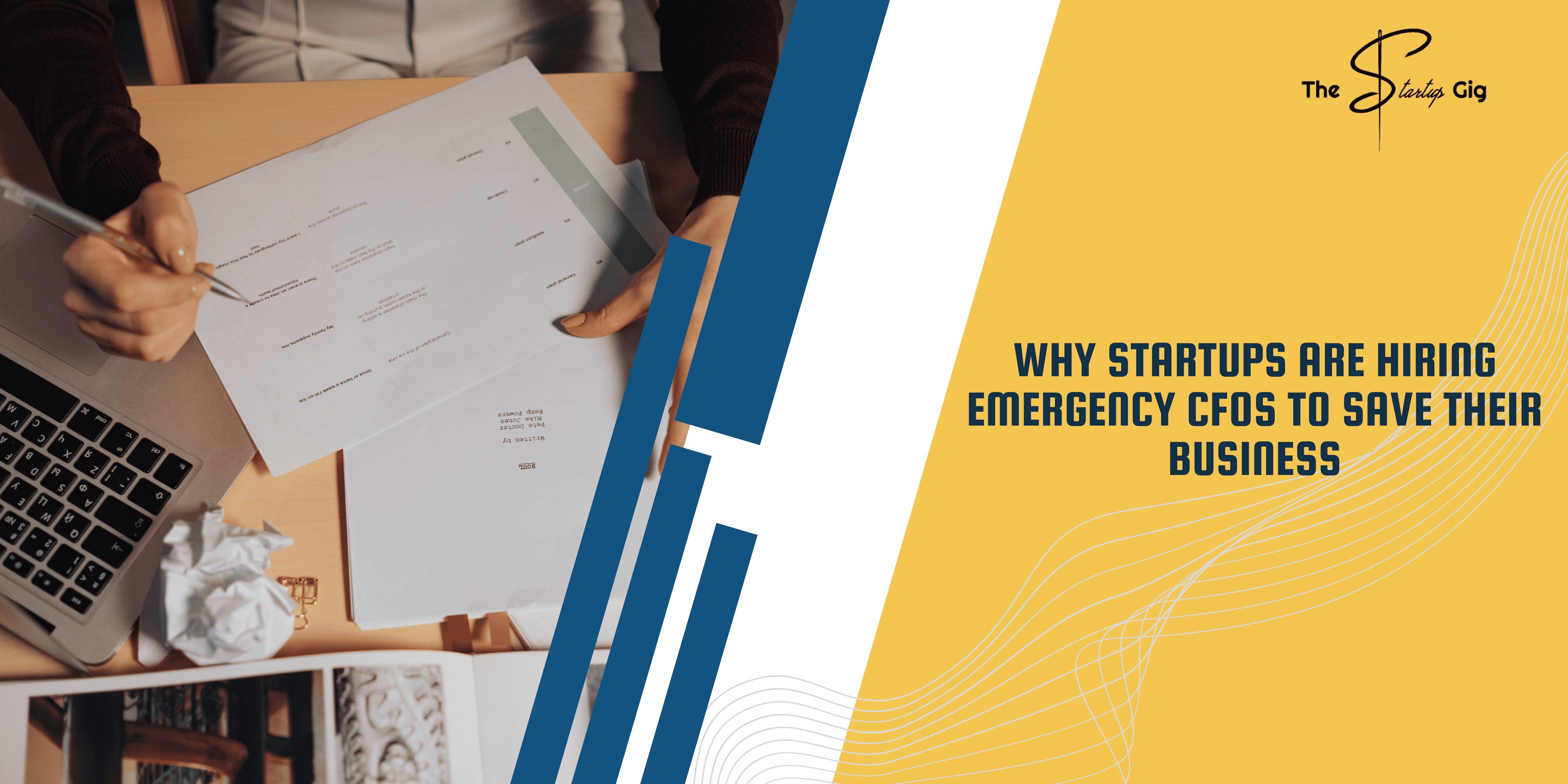What is an Emergency CFO?
Think of an Emergency CFO (or On-Demand CFO) as a financial doctor for your business. When things go wrong—cash flow issues, investor pressure, tax problems—they step in, diagnose the issue, and fix it fast.
Unlike a full-time CFO (who costs $200K+ per year), an Emergency CFO works on a short-term or project basis. Therefore, you only pay for what you need without committing to a big salary.
When Does a Startup Need an Emergency CFO?
Startups usually hire an Emergency CFO when they’re facing:
- Cash flow problems – Struggling to pay vendors, employees, or rent?
- Investor funding challenges – Need help preparing financials for funding rounds?
- Financial mismanagement – Losing track of where your money is going?
- Compliance or tax issues – Worried about tax penalties or legal troubles?
- Scaling too fast – Growing quickly but burning too much cash?
Instead of guessing your way through a financial crisis, The Startup Gig helps get your startup back on track before it’s too late.
How Startups Are Using Emergency CFOs to Avoid Financial Crises

1. Fixing Cash Flow Problems
One of the biggest reasons startups fail? Running out of money.
An Emergency CFO steps in to:
- Identify where cash is leaking
- Cut unnecessary expenses
- Improve payment terms with vendors
- Find new revenue opportunities
Example: A SaaS startup was about to miss payroll. Their Emergency CFO restructured cash flow, delayed non-urgent payments, and helped secure a short-term loan—keeping the company afloat.
2. Helping Startups Raise Money
Investors don’t just fund great ideas—they fund businesses that understand their finances.
- Emergency CFOs help with:
- Creating investor-ready financial reports
- Preparing accurate revenue & expense projections
- Guiding founders in VC negotiations
Example: A health-tech startup lost an investor because their numbers were messy. They hired an Emergency CFO, who cleaned up their finances and helped them secure $2M in funding.
3. Managing Financial Crises
Startups often make bad money decisions—overspending, underpricing, or scaling too fast. An Emergency CFO steps in to:
- Reduce wasteful spending
- Fix mismanaged budgets
- Prevent debt from piling up
Example: A D2C brand burned too much cash on ads without tracking ROI,. lowering advertising expenses by a huge percentage while boosting sales.
4. Avoiding Tax & Compliance Issues
Ignoring tax laws or compliance rules can get expensive—penalties, lawsuits, even shutdowns.
Emergency CFOs make sure:
- Taxes are filed correctly
- The business is legally compliant
- No financial fraud risks exist
Example: A startup received a huge unexpected tax bill. Their Emergency CFO helped them restructure their finances, reducing their tax burden legally and efficiently.
5. Helping Startups Scale Without Losing Money
Growth is exciting, but if your finances aren’t managed well, it can turn into a disaster.
Emergency CFOs help startups:
- Scale without burning cash too fast
- Improve profit margins
- Set up systems for long-term financial stability
Example: A fintech startup doubled its revenue but was losing money every month. Their Emergency CFO stepped in, optimized operations, and turned them profitable within six months.
What to Look for?
- Experience in startup finance
- Strong track record in fixing financial problems
- Fundraising & investor relations expertise
- Understanding of tax & compliance laws
- Affordable rates that fit your budget
Final Thoughts
A financial crisis can kill a startup if not handled quickly. Whether it’s cash flow issues, fundraising problems, or tax troubles, an Emergency CFO can be the difference between survival and failure.
Instead of waiting for things to get worse, smart startups bring in an on-demand CFO early—keeping their business stable, profitable, and investor-ready.
Need financial help? Consider hiring The Startup Gig to be your Emergency CFO today!




